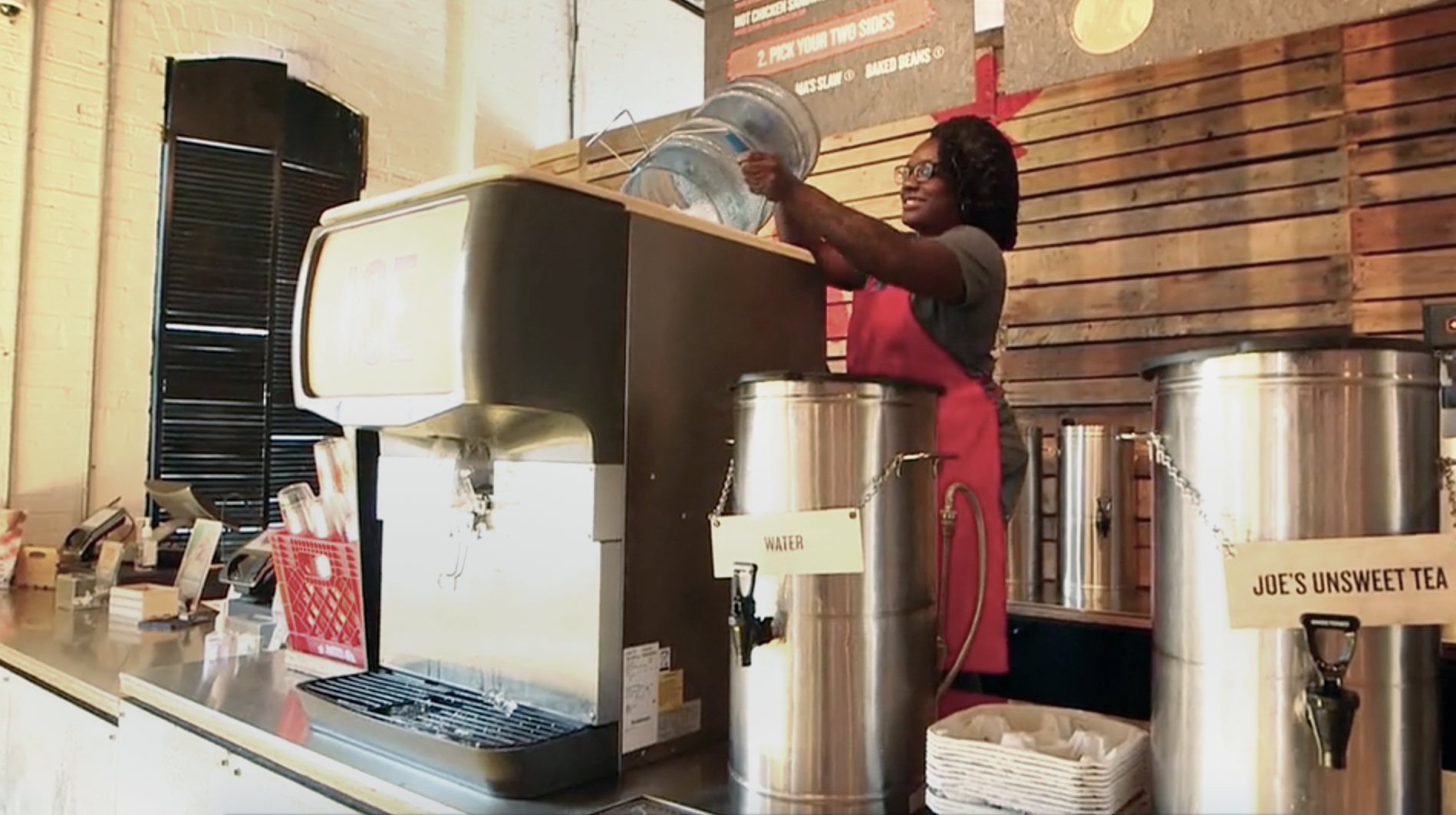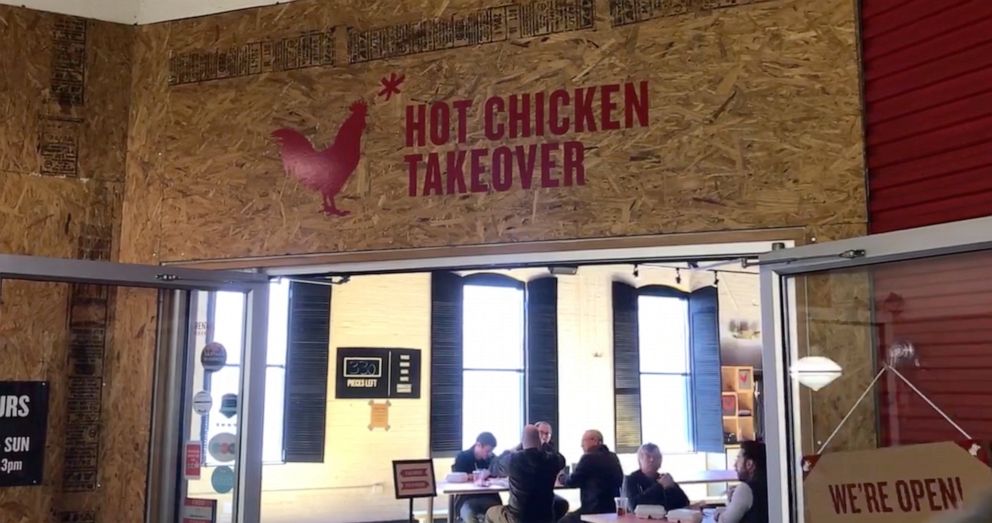Local businesses work together to combat Ohio's growing opioid crisis
House of Hope and Hot Chicken Takeover deal with Ohio's drug addiction crisis.
COLUMBUS, Ohio -- Treatment facilities and employers are working to tackle the opioid epidemic in central Ohio, which has been particularly hard hit by the growing national crisis.
House of Hope in downtown Columbus has helped an increasing number of opiate addicts through recovery. Hot Chicken Takeover, a Nashville-style chicken restaurant chain headquartered in Columbus, hires recovering addicts as well as other formerly incarcerated and homeless people.
House of Hope has provided addiction recovery services to city residents for 60 years, originally treating mostly alcoholics. But as the drug crisis has slammed Central Ohio particularly hard, they have seen more recovering opiate addicts.
"We treat the disease of addiction. We don't treat a drug," Carolyn Ireland, House of Hope’s CEO, told ABC News. "We are here to help people get sober, you know, and live a life of sobriety."
Twenty-four men at a time can join House of Hope’s six-month residential treatment program where they go through individual and group counseling as well as cognitive behavioral therapy. Graduates may continue to live in recovery residences after completing the program.

Kyle Harden entered House of Hope’s doors two years ago as he was battling alcohol and opiate addictions. Now he works as the organization’s outreach director.
"Two years ago I couldn't stop using drugs and alcohol, was living in a homeless shelter. I was in and out of jail, couldn't hold down a job. No money, no hope. No friends, family wanted nothing to do with me," Harden said. "Now because of my time here, I work for the House of Hope."
While Harden found employment at House of Hope, the program also helps place graduates into jobs at other local businesses, including Hot Chicken Takeover.
Hot Chicken Takeover considers itself a "second chance employer," meaning people with employment barriers, like past drug addiction or incarceration, have a fair shot at jobs.
"A large percentage of our workforce are men and women in some state of recovery," Joe DeLoss, the founder and co-owner of Hot Chicken Takeover, said. "There's a sense of ownership, often an aspiration for what life could look like."

Approximately 70% of the restaurant chain's employees are formerly incarcerated or homeless. DeLoss said they have found second-chance applicants through a variety of local treatment centers and other community partners.
Jamila Perry began working at Hot Chicken Takeover’s North Market location last month after going through treatment for a years-long addiction to opioids. She can now provide for her children, whom she has recently reunited with, and has found a community in her coworkers.
"Our team is like family. Wherever one slacks, we pick it right back up and they don't complain about it. I just love it here," she said.




